
- Board Of Directors
- Organisation Chart
- Achieving Quality Tourism
- Legislation
- Corporate Governance
- Invest in Tourism
- ASEAN Economic Community
- Media Releases
- Corporate Publications
- Newsletters
- Statistics & Market Insights Overview
- Tourism Statistics
- Industries Overview
- Arts & Entertainment
- Attractions
- Dining & Retail
- Integrated Resorts
- Meetings, Incentives, Conventions & Exhibitions
- Tourist Guides
- Travel Agents
- Assistance and Licensing Overview
- Tourism Sustainability Programme (TSP)
- Singapore Visitor Centre (SVC) Network Partnership
- Grants Overview
- Licensing Overview
- Tax Incentives Overview
- Other Assistance & Resources Overview
- SG Stories Content Fund Season 2
- Marketing Partnership Programme
- SingapoReimagine Marketing Programme
- Singapore On-screen Fund
- Hotel Licensing Regulations
- Data College
- Trade Events and Activities
- Trade Events Overview
- SingapoReimagine Global Conversations
- SingapoRediscovers Vouchers
- Made With Passion
- Joint Promotion Opportunities
- Procurement Opportunities for STB's Overseas Regional Offices
- Product And Industry Updates
- Rental of F1 Pit Building
- Singapore Tourism Accelerator
- Sponsorship Opportunities
- STB Marketing College
- Tourism Innovation Challenge
- Harnessing Technology to Emerge Stronger Post COVID-19
- Tourism Transformation Index (TXI)
- New Tourism Development in Jurong Lake District
- International Trade Events
- Singapore Familiarization Trips
- EVA-Ready Programme
- Tourism Industry Conference
- Expo 2025 Sponsorship and Partnership Opportunities
- Virtual Influencer Open Call for Collaboration
- Students & Fresh Graduates
- Professionals
- Attractions Operator
- Business/Leisure Event Organiser
- Media Professional
- Tourist Guide
- Travel Agent

Advisory on COVID-19 for Travellers and Tourism Businesses
13 February 2023
General Advisory for Travellers
1. Singapore is open to all travellers without quarantine. This includes non-fully vaccinated travellers. Covid-19 pre-departure tests are not required. More details are available here. 2. Depending on the destination you are travelling from, mask-wearing aboard flights and ferries to Singapore may be required. Travellers are advised to check with the respective transport operator on the mask-wearing requirement prior to their trip.
3. Singapore has stepped down all COVID-19 measures and mask wearing is not required except in healthcare settings. However, do practise good personal hygiene and wear a mask if you are unwell.
USEFUL LINKS

For MOH's latest measures, please click here.
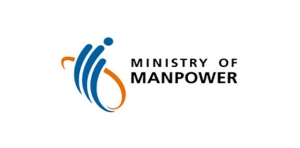
For MOM's latest advisories, please click here.
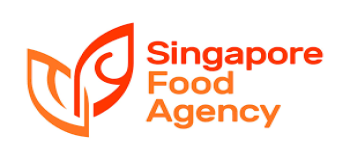
For SFA's requirement for food handlers

For ESG's latest SMMs, please click here .
About the Organisation
What industry does your organization fall within, what best describes the key intent of the project that your organisation is seeking funding for, is your organisation a singapore-registered legal entity, is your organisation an association, is the project able to achieve one or more of the following outcome.
- Increase no. of sailings to/from Singapore
- Increase no. of foreign cruise passengers to Singapore through sailings to/from Singapore
- Increase no. of pre/post nights for cruise passengers sailing to/from Singapore
- Increase capability of industry players via cruise-specific industry training programmes
- Strengthen the potential/ attractiveness of cruising in Singapore and/or Southeast Asia
Is the project able to achieve one or more of the following?
- Improve visitor satisfaction (especially foreign visitors)
- Increase footfall
- Increase revenue
- Significant branding and PR value
Is the project able to attract foreign visitors and contribute to foreign visitors' spend?
Who will be the main target audience of your project, is your project innovative and/or a new event in singapore with tourism potential, what best describes your project, does the event have proven track records in singapore or overseas, and/or growth in tourism value such as growing foreign visitorship, and/or enhancement of precinct vibrancy etc, does the project have a clear tourism focus (e.g. tourism-related trainings, tourism companies taking on capability development initiatives or technology companies creating technology products and services for the tourism businesses), what best describes your market feasibility study project.
Based on your selection, the following STB grant/s may be applicable for your project:
Please note that projects that have commenced prior to Singapore Tourism Board's offer may not be eligible for grant support. Examples where projects are deemed as having commenced include:
- Applicant has started work on the project e.g. tender has been called.
- Applicant has made payment(s) to any supplier, vendor or third party.
- Applicant has signed a contractual agreement with any supplier, vendor or third party.
11 things to know before visiting Singapore

Mar 9, 2024 • 6 min read
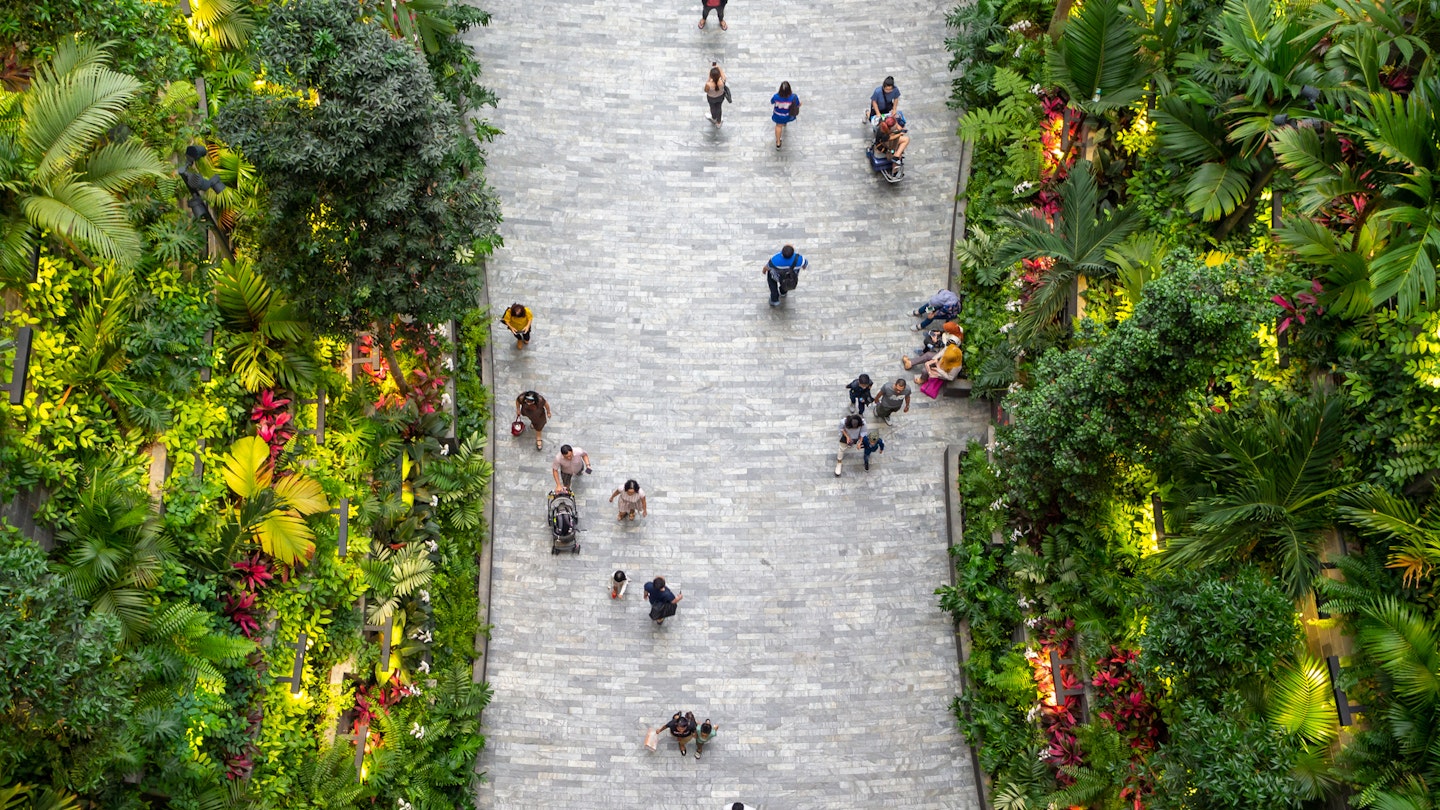
Plan for your trip to Singapore with these things you should know and insider tips © Jakub Zajic / Getty Images
Singapore has a well-cultivated image of being a safe country .
Too safe perhaps for some, who balk at its infamously strict rules and fines for flouting them, and find the gleaming modern city too sanitized for their liking. Others appreciate the clean streets and manicured gardens amidst the tall buildings along with the intriguing mix of people that make up Singapore’s multifaceted culture.
As a Singaporean who’s lived here all her life (and who has always had to explain the country to fellow travelers in foreign hostel common rooms) here’s what you need to know about Singapore, its cultural landscape, and its local customs and quirks, to help you plan your trip to the Little Red Dot.
1. Singapore is small, but with lots to see and do
Compact Singapore takes less than an hour to drive from end to end but there’s a lot packed into this small country. For a first-time visitor, three to four days is usually sufficient to see the main highlights and get a feel of the top things to do in Singapore .
If you’re really short on time, plan a layover with at least 5.5 hours and you can join one of three free transit tours organized by the excellent Changi Airport for a quick taster of what the country has to offer.
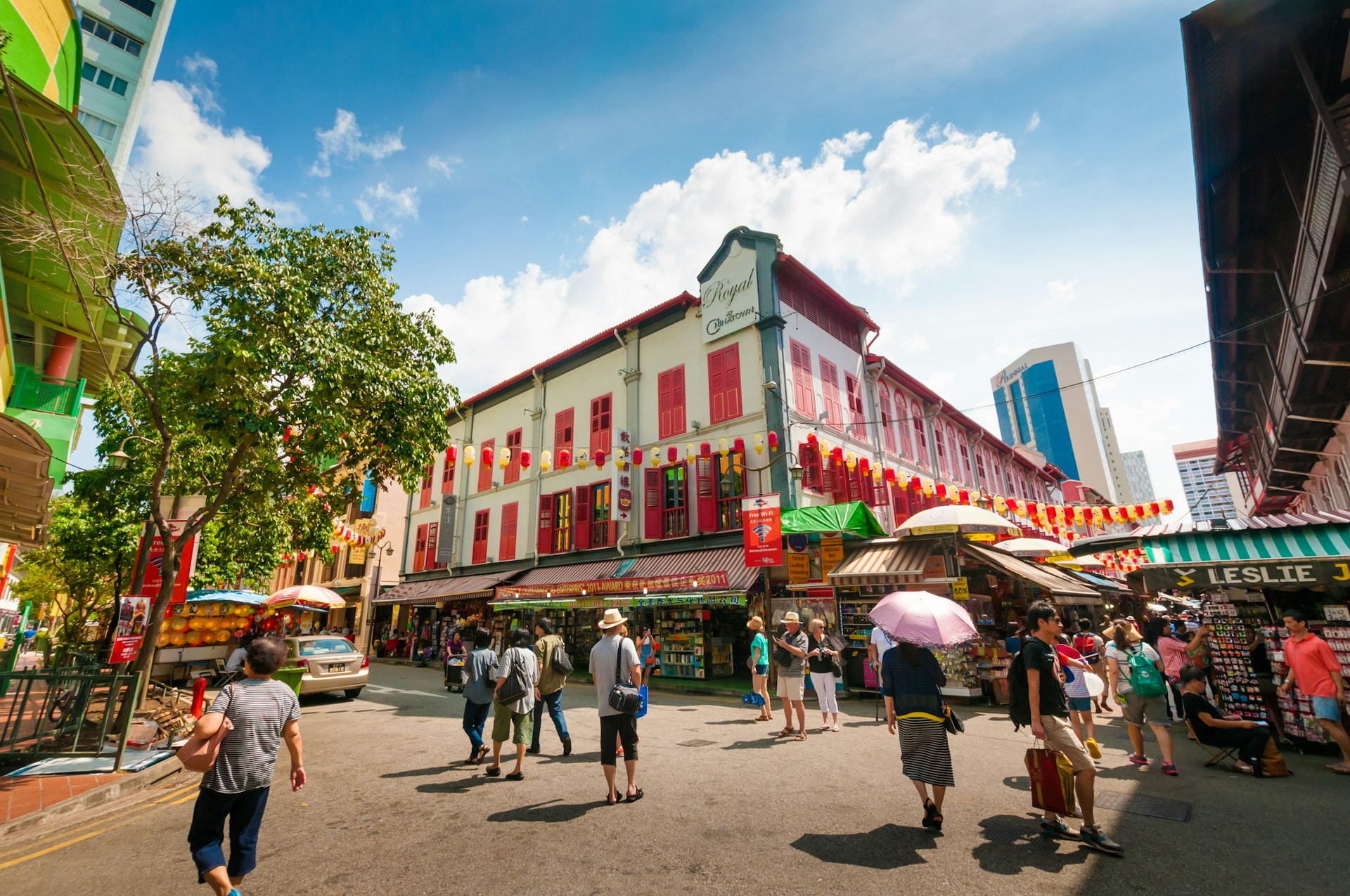
2. Pack for the tropics
Practically located on the equator, expect hot tropical weather ranging from 25 to 35ºC (77 to 95ºF) every single day in Singapore. A small umbrella is essential in case of scorching rays or sudden downpours.
What can be tough for those used to temperate climates is Singapore’s high humidity – 60 to 90% on average throughout the year, so be prepared to sweat it out. Pack light materials or bring a small fan or hankie around with you. Anyone basking under the afternoon sun who’s not on the beach is definitely a tourist – be sure to slap on the sunblock!
Funnily enough, it tends to be a lot colder indoors than outdoors because shopping malls and central cooling overcompensate for the heat.
A scarf or a light jacket will keep you warm, offer extra sun protection and are the perfect cover-up if you plan to visit religious buildings.
3. Singapore is an independent country
With a majority Chinese population, some people mistakenly assume that Singapore is a part of China, which is not the case. Most Chinese Singaporeans are descendants of southeastern Chinese immigrants who sailed across the seas decades ago.
Singapore may be hard to spot on a map, but you’ll find it just south of the Malaysian peninsula in Southeast Asia, four hours away from China by plane. On that note, despite its proximity and commonalities in shared culture and history, Singapore is also not a part of Malaysia, though it was very briefly back in 1963 before Singapore became fully independent in 1965, making next year – 2025 – the 60th anniversary of the republic.
4. Most Singaporeans speak excellent English
Singapore is an easy place for Western tourists to explore on their own because of the widespread use of English here. Fun fact: Singapore actually has four official languages: Mandarin, Bahasa Melayu and Tamil represent the three major ethnic groups found here (Chinese, Malay and Indian respectively), and English is the main language used in schools and for business, which also allows for conversation across ethnicities.
5. Natural disasters are unlikely in Singapore
Singapore may not have scenic mountain ranges or awe-inspiring topography, but it’s also out of the path of any major tectonic movement. You are unlikely to face any major natural disasters – no earthquakes, volcanos, typhoons or sandstorms here.
In the worst case, there may be flash floods during particularly rainy periods or haze blanketing the island from forest fires around the region, but these are usually temporary and minor inconveniences.
6. Singapore is a safe and stable place to visit
Singapore is also well-known for its generally stable political and business climate, often ranked as one of the least corrupt countries in the world. Strikes that can disrupt travel plans are practically nonexistent here.
The crime rate in Singapore is also relatively low with lots of surveillance and a police force that people trust in. As a single woman, I’ve never been too worried about wandering around Singapore on my own even at night, but do maintain some common sense for your own safety as one of our popular slogans here goes: low crime doesn’t mean no crime.
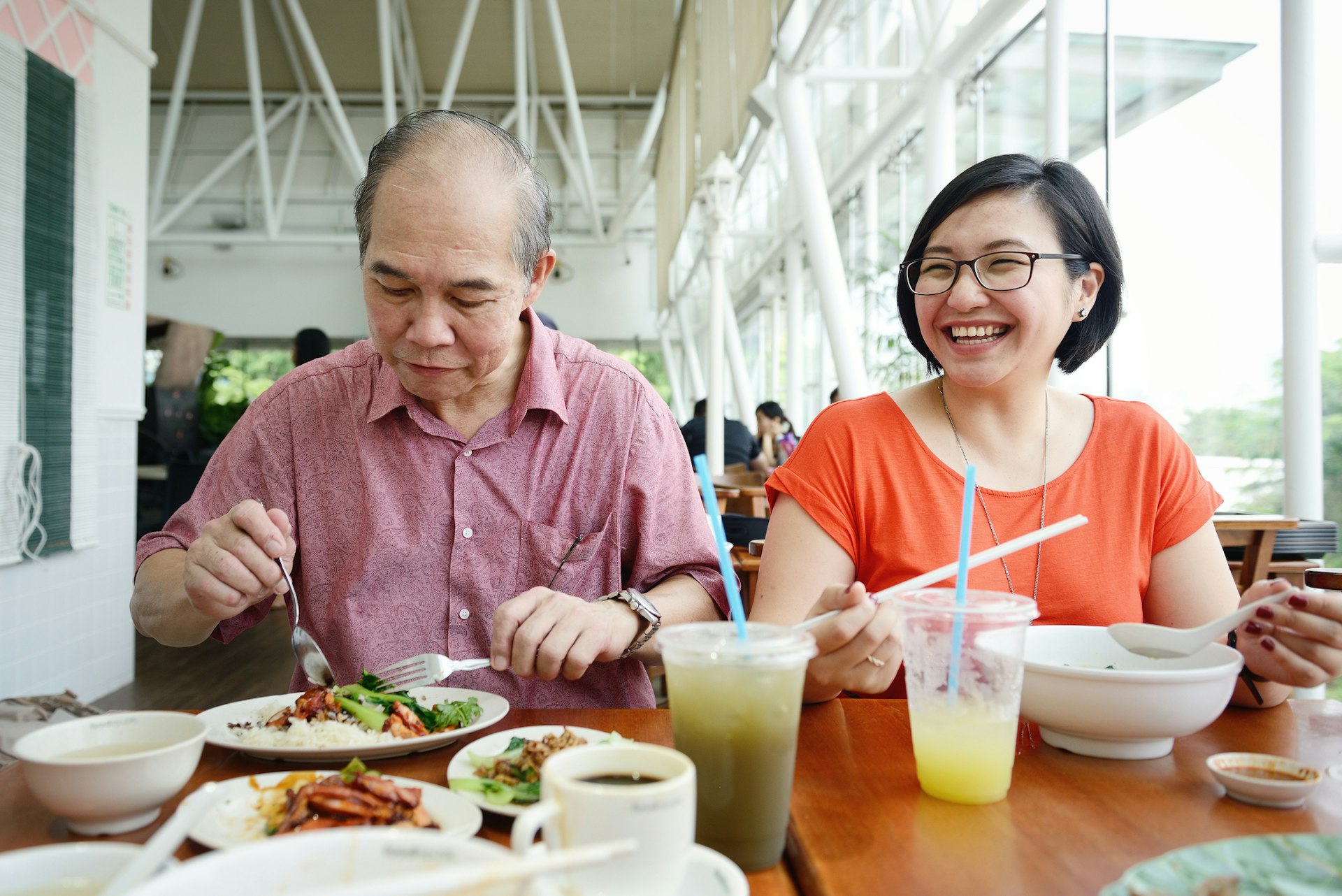
7. Carry both cash and credit cards
How many Singapore dollars you change before your trip largely depends on where you plan to go . Most major tourist attractions and shops in shopping malls will accept credit cards, and other cashless options like contactless payments and smart wallets are also common.
Those planning to take public transport in Singapore can use their credit cards on the public buses and MRT card readers for convenience, but purchasing a local EZ-Link card or transport pass may be more worthwhile depending on how much travel you plan to do. However, do carry some cash around with you as it remains the prevalent method of payment for most small businesses, eating at hawker center stalls, or taking a taxi. Try to break notes of larger denominations ($50/$100) into smaller ones ($2/$5/$10) when possible.
8. Prebook attractions to avoid waiting in line
There’s a joke that a Singaporean’s favorite pastime is to queue for things, but that’s not something you want to waste time on. If there is an option to prebook tickets online or make a reservation, just do it. This is key on busy weekends and peak vacation periods like the mid- and year-end school holidays.
An attraction’s official website is usually the best place to get tickets, but browse other booking platforms before you check out as these sites may offer special seasonal discounts or multi-bundle prices. Also check the Visit Singapore website as it sometimes runs incentive programs for tourists.
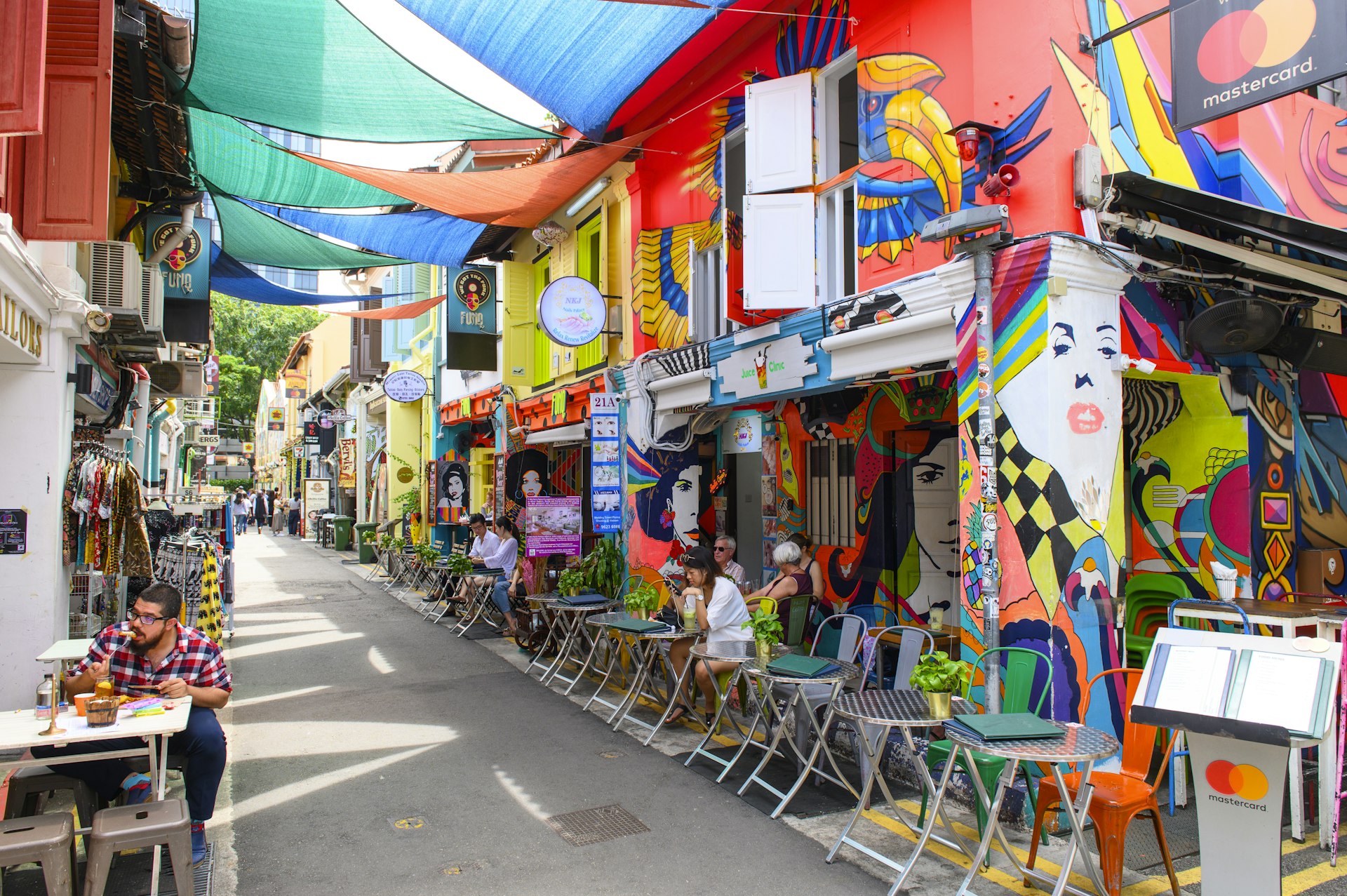
9. Tipping is not expected
Tipping is not expected in Singapore. If you’re eating out in a restaurant or cafe, there is usually a 10% service charge included in the bill. Some places may have a tip box but otherwise, additional tips are not mandatory or expected, though they are appreciated in the service line.
10. Understand the art of "chope-ing"
If you are eating at food centers or working at co-working spaces, particularly within the central business district, you may notice empty tables with strategically placed items like umbrellas, tissue packets or lanyards on the seats. This is a local practice to "chope" or reserve a seat while everyone is queuing up at the stalls. Most people honor this informal reservation system and will look elsewhere for available seats.
11. Yes, you can drink the tap water
There's no need to buy bottled water in Singapore. The tap water here is treated and perfectly safe to drink. You'll find that most attractions have water coolers where you can refill your reusable bottles while you're out and about during the day.
This article was first published Sep 22, 2023 and updated Mar 9, 2024.
Explore related stories
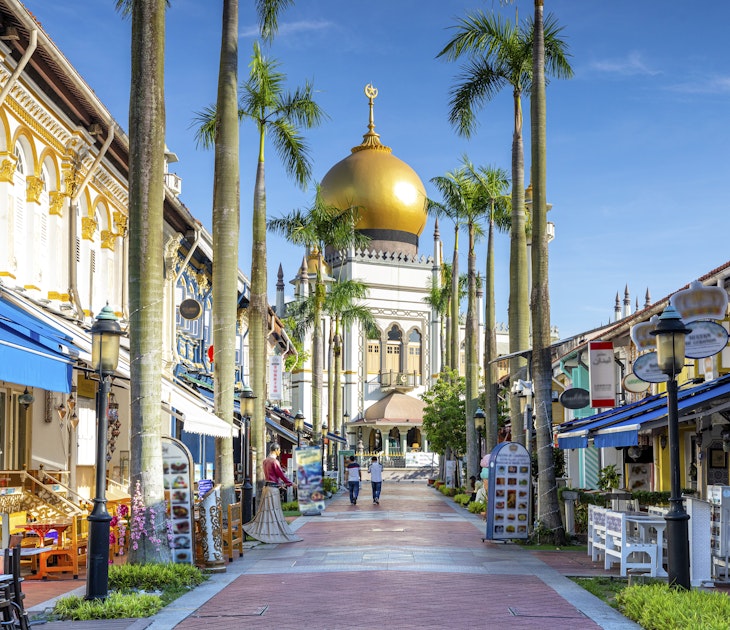
Tips & Advice
Apr 16, 2024 • 12 min read
Singapore's allure goes beyond its iconic hotels, manicured gardens and world-class airport – here are the best places to visit when you arrive.

Apr 6, 2024 • 6 min read
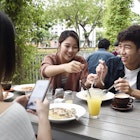
Mar 8, 2024 • 5 min read

Mar 8, 2024 • 6 min read

Feb 9, 2024 • 12 min read

Jan 5, 2024 • 20 min read

Dec 15, 2023 • 7 min read

Oct 28, 2023 • 10 min read

Oct 15, 2023 • 3 min read

Jun 2, 2023 • 8 min read
You are using an outdated browser. Upgrade your browser today or install Google Chrome Frame to better experience this site.
Singapore Traveler View
Travel health notices, vaccines and medicines, non-vaccine-preventable diseases, stay healthy and safe.
- Packing List
After Your Trip
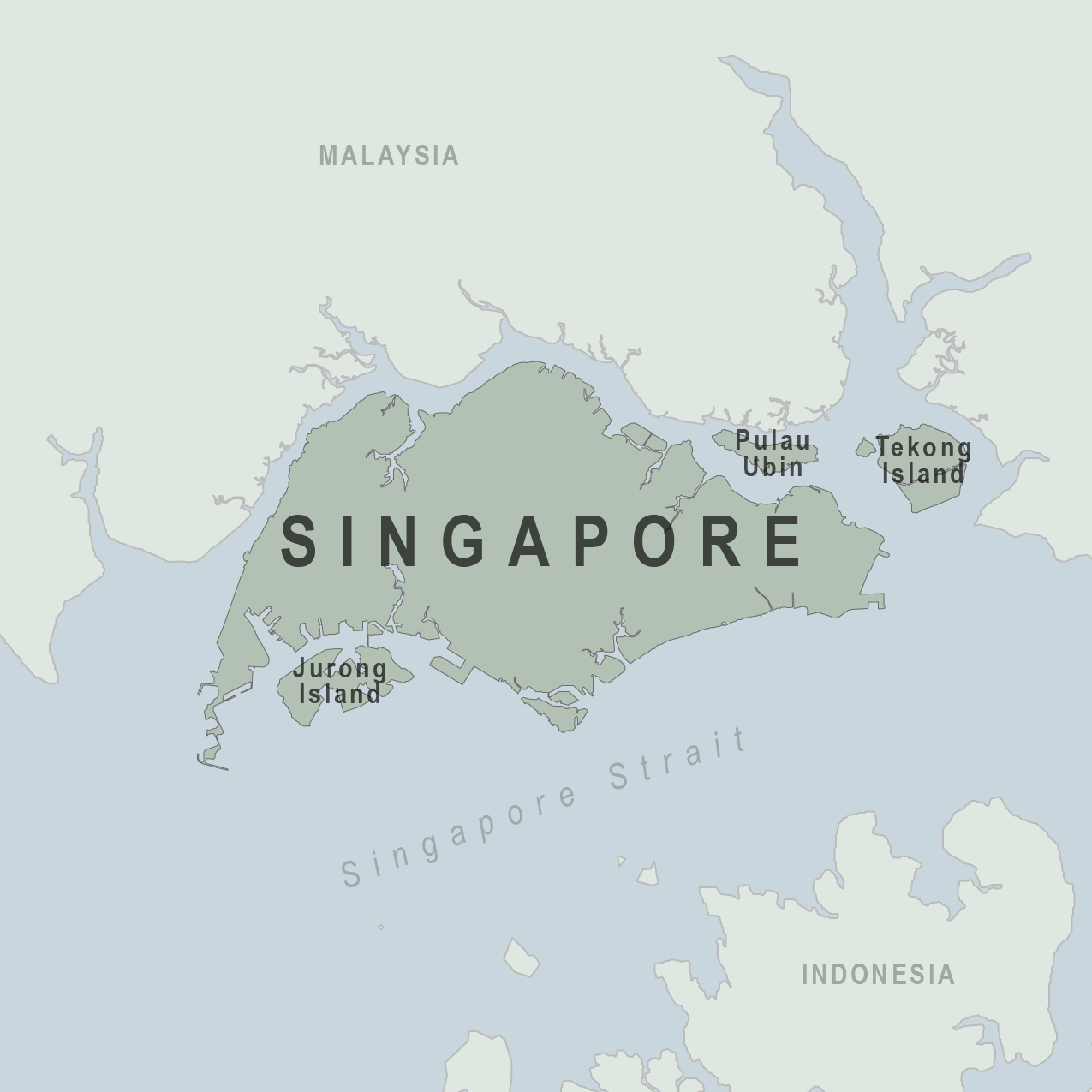
Be aware of current health issues in Singapore. Learn how to protect yourself.
Level 1 Practice Usual Precautions
- Dengue in Asia and the Pacific Islands April 18, 2024 Dengue is a risk in many parts of Asia and the Pacific Islands. Some countries are reporting increased numbers of cases of the disease. Travelers to Asia and the Pacific Islands can protect themselves by preventing mosquito bites. Destination List: Cambodia, Indonesia, Laos, Malaysia, Singapore, Sri Lanka
⇧ Top
Check the vaccines and medicines list and visit your doctor at least a month before your trip to get vaccines or medicines you may need. If you or your doctor need help finding a location that provides certain vaccines or medicines, visit the Find a Clinic page.
Routine vaccines
Recommendations.
Make sure you are up-to-date on all routine vaccines before every trip. Some of these vaccines include
- Chickenpox (Varicella)
- Diphtheria-Tetanus-Pertussis
- Flu (influenza)
- Measles-Mumps-Rubella (MMR)
Immunization schedules
All eligible travelers should be up to date with their COVID-19 vaccines. Please see Your COVID-19 Vaccination for more information.
COVID-19 vaccine
Hepatitis A
Recommended for unvaccinated travelers one year old or older going to Singapore.
Infants 6 to 11 months old should also be vaccinated against Hepatitis A. The dose does not count toward the routine 2-dose series.
Travelers allergic to a vaccine component or who are younger than 6 months should receive a single dose of immune globulin, which provides effective protection for up to 2 months depending on dosage given.
Unvaccinated travelers who are over 40 years old, immunocompromised, or have chronic medical conditions planning to depart to a risk area in less than 2 weeks should get the initial dose of vaccine and at the same appointment receive immune globulin.
Hepatitis A - CDC Yellow Book
Dosing info - Hep A
Hepatitis B
Recommended for unvaccinated travelers younger than 60 years old traveling to Singapore. Unvaccinated travelers 60 years and older may get vaccinated before traveling to Singapore.
Hepatitis B - CDC Yellow Book
Dosing info - Hep B
Cases of measles are on the rise worldwide. Travelers are at risk of measles if they have not been fully vaccinated at least two weeks prior to departure, or have not had measles in the past, and travel internationally to areas where measles is spreading.
All international travelers should be fully vaccinated against measles with the measles-mumps-rubella (MMR) vaccine, including an early dose for infants 6–11 months, according to CDC’s measles vaccination recommendations for international travel .
Measles (Rubeola) - CDC Yellow Book
Singapore is free of dog rabies. However, rabies may still be present in wildlife species, particularly bats. CDC recommends rabies vaccination before travel only for people working directly with wildlife. These people may include veterinarians, animal handlers, field biologists, or laboratory workers working with specimens from mammalian species.
Rabies - CDC Yellow Book
Recommended for most travelers, especially those staying with friends or relatives or visiting smaller cities or rural areas.
Typhoid - CDC Yellow Book
Dosing info - Typhoid
Yellow Fever
Required for travelers ≥1 year old arriving from countries with risk for YF virus transmission; this includes >12-hour airport transits or layovers in countries with risk for YF virus transmission. 1
Yellow Fever - CDC Yellow Book
Avoid contaminated water
Leptospirosis
How most people get sick (most common modes of transmission)
- Touching urine or other body fluids from an animal infected with leptospirosis
- Swimming or wading in urine-contaminated fresh water, or contact with urine-contaminated mud
- Drinking water or eating food contaminated with animal urine
- Avoid contaminated water and soil
Clinical Guidance
Avoid bug bites.
Chikungunya
- Mosquito bite
- Avoid Bug Bites
- Mosquito bite
- An infected pregnant woman can spread it to her unborn baby
Airborne & droplet
- Breathing in air or accidentally eating food contaminated with the urine, droppings, or saliva of infected rodents
- Bite from an infected rodent
- Less commonly, being around someone sick with hantavirus (only occurs with Andes virus)
- Avoid rodents and areas where they live
- Avoid sick people
Tuberculosis (TB)
- Breathe in TB bacteria that is in the air from an infected and contagious person coughing, speaking, or singing.
Counsel your patients on actions they can take on their trip to stay healthy and safe.
Eat and drink safely
Food and water standards around the world vary based on the destination. Standards may also differ within a country and risk may change depending on activity type (e.g., hiking versus business trip). You can learn more about safe food and drink choices when traveling by accessing the resources below.
- Choose Safe Food and Drinks When Traveling
- Water Treatment Options When Hiking, Camping or Traveling
- Global Water, Sanitation and Hygiene | Healthy Water
- Avoid Contaminated Water During Travel
You can also visit the Department of State Country Information Pages for additional information about food and water safety.
Prevent bug bites
Although Singapore is an industrialized country, bug bites here can still spread diseases. Just as you would in the United States, try to avoid bug bites while spending time outside or in wooded areas.
What can I do to prevent bug bites?
- Cover exposed skin by wearing long-sleeved shirts, long pants, and hats.
- Use an appropriate insect repellent (see below).
- Consider using permethrin-treated clothing and gear if spending a lot of time outside. Do not use permethrin directly on skin.
What type of insect repellent should I use?
- FOR PROTECTION AGAINST TICKS AND MOSQUITOES: Use a repellent that contains 20% or more DEET for protection that lasts up to several hours.
- Picaridin (also known as KBR 3023, Bayrepel, and icaridin)
- Oil of lemon eucalyptus (OLE) or para-menthane-diol (PMD)
- 2-undecanone
- Always use insect repellent as directed.
What should I do if I am bitten by bugs?
- Avoid scratching bug bites, and apply hydrocortisone cream or calamine lotion to reduce the itching.
- Check your entire body for ticks after outdoor activity. Be sure to remove ticks properly.
What can I do to avoid bed bugs?
Although bed bugs do not carry disease, they are an annoyance. See our information page about avoiding bug bites for some easy tips to avoid them. For more information on bed bugs, see Bed Bugs .
For more detailed information on avoiding bug bites, see Avoid Bug Bites .
Stay safe outdoors
If your travel plans in Singapore include outdoor activities, take these steps to stay safe and healthy during your trip:
- Stay alert to changing weather conditions and adjust your plans if conditions become unsafe.
- Prepare for activities by wearing the right clothes and packing protective items, such as bug spray, sunscreen, and a basic first aid kit.
- Consider learning basic first aid and CPR before travel. Bring a travel health kit with items appropriate for your activities.
- If you are outside for many hours in the heat, eat salty snacks and drink water to stay hydrated and replace salt lost through sweating.
- Protect yourself from UV radiation : use sunscreen with an SPF of at least 15, wear protective clothing, and seek shade during the hottest time of day (10 a.m.–4 p.m.).
- Be especially careful during summer months and at high elevation. Because sunlight reflects off snow, sand, and water, sun exposure may be increased during activities like skiing, swimming, and sailing.
- Very cold temperatures can be dangerous. Dress in layers and cover heads, hands, and feet properly if you are visiting a cold location.
Stay safe around water
- Swim only in designated swimming areas. Obey lifeguards and warning flags on beaches.
- Do not dive into shallow water.
- Avoid swallowing water when swimming. Untreated water can carry germs that make you sick.
- Practice safe boating—follow all boating safety laws, do not drink alcohol if you are driving a boat, and always wear a life jacket.
Keep away from animals
Most animals avoid people, but they may attack if they feel threatened, are protecting their young or territory, or if they are injured or ill. Animal bites and scratches can lead to serious diseases such as rabies.
Follow these tips to protect yourself:
- Do not touch or feed any animals you do not know.
- Do not allow animals to lick open wounds, and do not get animal saliva in your eyes or mouth.
- Avoid rodents and their urine and feces.
- Traveling pets should be supervised closely and not allowed to come in contact with local animals.
- If you wake in a room with a bat, seek medical care immediately. Bat bites may be hard to see.
All animals can pose a threat, but be extra careful around dogs, bats, monkeys, sea animals such as jellyfish, and snakes. If you are bitten or scratched by an animal, immediately:
- Wash the wound with soap and clean water.
- Go to a doctor right away.
- Tell your doctor about your injury when you get back to the United States.
Reduce your exposure to germs
Follow these tips to avoid getting sick or spreading illness to others while traveling:
- Wash your hands often, especially before eating.
- If soap and water aren’t available, clean hands with hand sanitizer (containing at least 60% alcohol).
- Don’t touch your eyes, nose, or mouth. If you need to touch your face, make sure your hands are clean.
- Cover your mouth and nose with a tissue or your sleeve (not your hands) when coughing or sneezing.
- Try to avoid contact with people who are sick.
- If you are sick, stay home or in your hotel room, unless you need medical care.
Avoid sharing body fluids
Diseases can be spread through body fluids, such as saliva, blood, vomit, and semen.
Protect yourself:
- Use latex condoms correctly.
- Do not inject drugs.
- Limit alcohol consumption. People take more risks when intoxicated.
- Do not share needles or any devices that can break the skin. That includes needles for tattoos, piercings, and acupuncture.
- If you receive medical or dental care, make sure the equipment is disinfected or sanitized.
Know how to get medical care while traveling
Plan for how you will get health care during your trip, should the need arise:
- Carry a list of local doctors and hospitals at your destination.
- Review your health insurance plan to determine what medical services it would cover during your trip. Consider purchasing travel health and medical evacuation insurance for things your regular insurance will not cover.
- Carry a card that identifies, in the local language, your blood type, chronic conditions or serious allergies, and the generic names of any medicines you take.
- Bring copies of your prescriptions for medicine and for eye glasses and contact lenses.
- Some prescription drugs may be illegal in other countries. Call Singapore’s embassy to verify that all of your prescription(s) are legal to bring with you.
- Bring all the medicines (including over-the-counter medicines) you think you might need during your trip, including extra in case of travel delays. Ask your doctor to help you get prescriptions filled early if you need to.
Many foreign hospitals and clinics are accredited by the Joint Commission International. A list of accredited facilities is available at their website ( www.jointcommissioninternational.org ).
Select safe transportation
Motor vehicle crashes are the #1 killer of healthy US citizens in foreign countries.
Be smart when you are traveling on foot.
- Use sidewalks and marked crosswalks.
- Pay attention to the traffic around you, especially in crowded areas.
- Remember, people on foot do not always have the right of way in other countries.
Riding/Driving
Choose a safe vehicle.
- Choose official taxis or public transportation, such as trains and buses.
- Make sure there are seatbelts.
- Avoid overcrowded, overloaded, top-heavy buses and minivans.
- Avoid riding on motorcycles or motorbikes, especially motorbike taxis. (Many crashes are caused by inexperienced motorbike drivers.)
- Choose newer vehicles—they may have more safety features, such as airbags, and be more reliable.
- Choose larger vehicles, which may provide more protection in crashes.
Think about the driver.
- Do not drive after drinking alcohol or ride with someone who has been drinking.
- Consider hiring a licensed, trained driver familiar with the area.
- Arrange payment before departing.
Follow basic safety tips.
- Wear a seatbelt at all times.
- Sit in the back seat of cars and taxis.
- When on motorbikes or bicycles, always wear a helmet. (Bring a helmet from home, if needed.)
- Do not use a cell phone or text while driving (illegal in many countries).
- Travel during daylight hours only, especially in rural areas.
- If you choose to drive a vehicle in Singapore, learn the local traffic laws and have the proper paperwork.
- Get any driving permits and insurance you may need. Get an International Driving Permit (IDP). Carry the IDP and a US-issued driver's license at all times.
- Check with your auto insurance policy's international coverage, and get more coverage if needed. Make sure you have liability insurance.
- Avoid using local, unscheduled aircraft.
- If possible, fly on larger planes (more than 30 seats); larger airplanes are more likely to have regular safety inspections.
- Try to schedule flights during daylight hours and in good weather.
Helpful Resources
Road Safety Overseas (Information from the US Department of State): Includes tips on driving in other countries, International Driving Permits, auto insurance, and other resources.
The Association for International Road Travel has country-specific Road Travel Reports available for most countries for a minimal fee.
Traffic flows on the left side of the road in Singapore.
- Always pay close attention to the flow of traffic, especially when crossing the street.
- LOOK RIGHT for approaching traffic.

Maintain personal security
Use the same common sense traveling overseas that you would at home, and always stay alert and aware of your surroundings.
Before you leave
- Research your destination(s), including local laws, customs, and culture.
- Monitor travel advisories and alerts and read travel tips from the US Department of State.
- Enroll in the Smart Traveler Enrollment Program (STEP) .
- Leave a copy of your itinerary, contact information, credit cards, and passport with someone at home.
- Pack as light as possible, and leave at home any item you could not replace.
While at your destination(s)
- Carry contact information for the nearest US embassy or consulate .
- Carry a photocopy of your passport and entry stamp; leave the actual passport securely in your hotel.
- Follow all local laws and social customs.
- Do not wear expensive clothing or jewelry.
- Always keep hotel doors locked, and store valuables in secure areas.
- If possible, choose hotel rooms between the 2nd and 6th floors.
Healthy Travel Packing List
Remind your patients to pack health and safety items. Use the Healthy Travel Packing List for Singapore for a list of health-related items they should consider packing.
If you are not feeling well after your trip, you may need to see a doctor. If you need help finding a travel medicine specialist, see Find a Clinic . Be sure to tell your doctor about your travel, including where you went and what you did on your trip. Also tell your doctor if you were bitten or scratched by an animal while traveling.
For more information on what to do if you are sick after your trip, see Getting Sick after Travel .
Map Disclaimer - The boundaries and names shown and the designations used on maps do not imply the expression of any opinion whatsoever on the part of the Centers for Disease Control and Prevention concerning the legal status of any country, territory, city or area or of its authorities, or concerning the delimitation of its frontiers or boundaries. Approximate border lines for which there may not yet be full agreement are generally marked.
Other Destinations
If you need help finding travel information:
Message & data rates may apply. CDC Privacy Policy
File Formats Help:
- Adobe PDF file
- Microsoft PowerPoint file
- Microsoft Word file
- Microsoft Excel file
- Audio/Video file
- Apple Quicktime file
- RealPlayer file
- Zip Archive file
Exit Notification / Disclaimer Policy
- The Centers for Disease Control and Prevention (CDC) cannot attest to the accuracy of a non-federal website.
- Linking to a non-federal website does not constitute an endorsement by CDC or any of its employees of the sponsors or the information and products presented on the website.
- You will be subject to the destination website's privacy policy when you follow the link.
- CDC is not responsible for Section 508 compliance (accessibility) on other federal or private website.

- Countries & Regions
- International Organisations (IOs)
- Climate Change
- Counter Terrorism
- Disarmament
- Cybersecurity
- International Peacekeeping
- Singapore's Voluntary National Review
- Small States
- Sustainable Development
- Pedra Branca
- Singapore Universal Periodic Review
- Water Agreements
- Find A Singapore Overseas Mission
- Foreign Representatives To Singapore
- COVID-19 Information
Travel Tips
- Visa Information
- I Need Help Overseas
- Passport Matters
- Legalisation of Documents
- Travel Advisories and Notices
- Useful links
- Press Statements, Transcripts & Photos
- Announcements and Highlights
- Experience Singapore
- Foreign Service Officer (Functional and Corporate)
- Foreign Service Officer (Political and Economic)
- Foreign Service Administration Specialist
- Job Opportunities
- Pre-University
- Undergraduate
- Foreign Service Scholarships
- Recruitment
- Scholarship
- Reach.gov.sg
Before I Travel
Travellers are reminded to check the COVID-19 entry requirements of the countries that you intend to visit.
Please refer to ICA’s website for more information on the Health-Related Border Measures and general entry requirements for returning Singaporeans and other travellers.
eRegister with MFA so that we can better help you during an emergency or crisis.
Apply for an Exit Permit (for National Service-liable male Singaporean citizens and Permanent Residents).
Check the visa requirements of countries you intend to enter or transit in. As visa requirements can change at short notice, we advise you to check with your travel agencies or the relevant foreign embassies to ensure that you have the most updated visa information. Please note that visa requirements may also differ for holders of Singapore Temporary Travel Document.
Why do I need a visa?
Every country has the right to deny you entry if a visa is required and you are unable to present one. If you do not possess an appropriate visa, you may be denied entry to the country you are visiting or transiting in, ending your trip before it has even begun. We are unable to assist you in such a situation as we cannot intervene in another state’s immigration policies, just as how they cannot interfere in Singapore’s. Visas are issued for different purposes such as study, tourism, or business. Please ensure that you obtain the appropriate visa for your travel purpose, or you may be refused entry into the country.
Purchase comprehensive travel insurance with COVID-19 coverage, and including medical evacuation in case you encounter any unexpected emergencies. Be familiar with the terms and coverage of your policy.
Why do I need insurance?
Possessing the right travel insurance can save you a great deal of trouble should adverse situations occur.
A healthy Singaporean visiting China suffered a sudden brain hemorrhage and had to be hospitalised. Given his critical condition, the Singaporean remained hospitalised for two weeks and chalked up a daily bill of S$1,000. When he was eventually cleared by the hospital for medical evacuation back to Singapore, the flight evacuation cost almost S$60,000. Unfortunately, the Singaporean had not purchased any travel insurance and his family had to foot the entire hospital bill as well as the cost of medical evacuation amounting to S$74,000.
If you do not have suitable insurance, you or your family and friends will be required to bear the burden of these expenses, which can be extremely costly. We therefore strongly advise you to purchase a suitable insurance policy and know the terms and conditions of your policy, before travelling abroad.
Check the health and vaccination requirements of your destination(s).
Bring your doctor’s prescription if you have to carry any medication, as you may need to show this at the customs checkpoint(s).
Check the customs regulations concerning import and export of items for the countries you are visiting. Some countries require travellers to declare items that are under their quarantine restrictions at the entry checkpoint.
Check MFA travel information for your destination(s).
Read up on your destination’s local news and regulations. Get information from experienced travellers, travel agents, tourist information offices and airlines.
Ensure that your passport has at least 6 months’ validity.
Make or save copies of your important documents (e.g. identity card, passport data page, credit cards, and travellers’ cheques) in case you lose any of them. Leave copies with your family and friends as a contingency.
Tell your friends and family where you are going and how to contact you.
Find out where the nearest Singapore Overseas Mission is to you.
Apply for an International Driving Permit if you plan to drive overseas.
Have valid tickets to return home.
Bring adequate funds for your stay.
I Am Already Abroad
We hope you are enjoying your travels abroad, but we encourage you to take note of the following points to ensure your trip remains a happy and productive one.
Always take care of your personal safety.
Obey the laws and respect the local customs of the countries you are visiting.
Keep abreast of the local news.
Keep your passport and identity card separate to minimise the risk of you losing both your ID documents.
Never carry too much cash and valuables.
Never leave your valuables unattended.
Never carry packages through customs on behalf of other people.
Make sure you know the local traffic rules should you intend to drive.
Ensure that you, your passengers and the vehicle are covered by insurance.
Keep your family and friends informed of your whereabouts and activities.
Take a few minutes to eRegister with MFA if you have not done so.
Find out where the nearest Singapore Overseas Mission is to you.
To keep updated on travel advisories while you travel, follow @MFAsgConsular on Twitter.
The Ministry of Foreign Affairs is a ministry of the Government of Singapore responsible for conducting and managing diplomatic relations between Singapore and other countries and regions.
Travel Page
Security Alert May 17, 2024
Worldwide caution, update may 10, 2024, information for u.s. citizens in the middle east.
- Travel Advisories |
- Contact Us |
- MyTravelGov |
Find U.S. Embassies & Consulates
Travel.state.gov, congressional liaison, special issuance agency, u.s. passports, international travel, intercountry adoption, international parental child abduction, records and authentications, popular links, travel advisories, mytravelgov, stay connected, legal resources, legal information, info for u.s. law enforcement, replace or certify documents.
Before You Go
Learn About Your Destination
While Abroad
Emergencies
Share this page:
Travel Advisory July 24, 2023
Singapore - level 1: exercise normal precautions.
Reissued with obsolete COVID-19 page links removed .
Exercise normal precautions in Singapore.
Read the country information page for additional information on travel to Singapore.
If you decide to travel to Singapore:
- Enroll in the Smart Traveler Enrollment Program (STEP) to receive Alerts and make it easier to locate you in an emergency.
- Follow the Department of State on Facebook and Twitter .
- Review the Country Security Report for Singapore.
- Visit the CDC page for the latest Travel Health Information related to your travel.
- Prepare a contingency plan for emergency situations. Review the Traveler’s Checklist .
Embassy Messages
View Alerts and Messages Archive
Quick Facts
2 page requirement for entry stamp.
Not required for stays under 90 days.
Yellow fever for travelers from certain countries.
20,000 Singapore Dollars.
Embassies and Consulates
U.s. embassy singapore.
27 Napier Road Singapore 258508 Telephone: +(65) 6476-9100 Emergency After-Hours Telephone: +(65) 6476-9100 Fax: +(65) 6476-9232 Email: [email protected]
Destination Description
Learn about the U.S. relationship to countries around the world.
Entry, Exit and Visa Requirements
To enter Singapore, you need a passport that is valid for at least six months beyond the date of your intended stay. If you plan on regional travel beyond Singapore, make sure that your passport is valid for at least six months beyond the date you plan to enter other countries in the region. You do not need a visa for tourist or business visits up to 90 days.
Visit the Embassy of Singapore website for the most current visa information.
The U.S. Department of State is unaware of any HIV/AIDS entry restrictions for visitors to Singapore. Foreign workers applying for an employment pass are required to undergo a medical screening for HIV/AIDS and a positive test will result in the rejection of a foreign worker’s application.
Find information on dual nationality , prevention of international child abduction and customs regulations on our websites.
COVID-19 Requirements: There are no COVID-related entry requirements for U.S. citizens.
Safety and Security
Criminal Penalties: You are subject to local laws. If you violate local laws, even unknowingly, you may be expelled, arrested, or imprisoned. Individuals establishing a business or practicing a profession that requires additional permits or licensing should seek information from the competent local authorities, prior to practicing or operating a business.
In Singapore, you may be taken in for questioning if you don’t have your passport with you. Travelers should be aware of the following penalties for certain crimes in Singapore:
· Possible arrest for jaywalking, littering, or spitting
· Mandatory caning (a form of physical punishment) for certain vandalism offenses
· Possible imprisonment, caning, or fines for immigration violations
· Possible imprisonment, caning or fines for sex crimes or sexually inappropriate behavior. Lewd, unwanted behavior, including inappropriate comments, messages, or photography toward women who find it offensive may result in fines and imprisonment (“Insulting the modesty of woman”). If there is unwanted physical contact of any kind involved (“Outrage of modesty,” molestation), the laws are gender neutral and punishments generally more severe.
· Severe penalties for drug-related charges, including the death penalty or caning.
· Strict penalties for those who illegally possess or carry firearms, or who commit crimes with firearms
If you are suspected of consuming or possessing illegal drugs , police may:
· Conduct unannounced drug tests and property searches, including upon entry into Singapore
· Require you to provide a urine or blood sample on short notice
A positive finding or an unwillingness to participate can lead to:
· Denial of entry into Singapore
· Detention
· Confiscation of your passport while under investigation
Singaporean authorities may arrest and convict any permanent residents of Singapore even if they have consumed illegal drugs outside of Singapore.
Singapore does not recognize dual nationality beyond the age of 22, and it strictly enforces universal national service for all male citizens and permanent residents. To determine if you have a national service obligation, contact the Ministry of Defense.
Drunk and disorderly conduct can lead to a SG$1,000 fine or imprisonment. It is illegal to drink alcohol in a public place between 10:30 pm and 7:00 am. The areas of Geylang and Little India are designated as “Liquor Control Zones” where drinking in public places is prohibited all weekend, on public holidays, and on the eve of public holidays.
Public Demonstrations: Public demonstrations are legal only at Speakers’ Corner in Hong Lim Park. Most outdoor public assemblies require a police permit. Singapore forbids foreign nationals who do not have permanent resident status from participating in or observing permitted public demonstrations, assemblies, and processions at Speakers’ Corner. Penalties may be severe, including large fines and/or imprisonment.
Some laws are also prosecutable in the United States, regardless of local law. For examples, see our website on crimes against minors abroad and the Department of Justice website.
Arrest Notification: If you are arrested or detained, ask police or prison officials to notify the U.S. Embassy immediately. See our webpage for further information.
Faith-Based Travelers: The Singapore Convention of Jehovah’s Witness and the Unification Church are banned by the Singapore government. All written materials published by the International Bible Students Association and the Watchtower Bible and Tract Society, publishing arms of the Jehovah’s Witnesses, remain banned. Possible penalties include fines and imprisonment.
See our following webpages for additional details on faith-based traveling:
- Faith-Based Travel Information
International Religious Freedom Report – see country reports
- Human Rights Report – see country reports
- Hajj Fact Sheet for Travelers
- Best Practices for Volunteering Abroad
LGBTI Travelers: Singapore does not recognize same-sex unions. The Penal Code criminalizes any “act of gross indecency” between two men and prescribes a sentence not exceeding two years for those found guilty under this law. The Singaporean government has stated that it will not enforce this section of the Penal Code but it remains on the statute books. The government restricts foreigners from involvement in public events that champion LGBTI issues. LGBTI individuals may have difficulty gaining employment in certain sectors of the civil service. The Ministry of Manpower does not issue dependent passes (work permits) to partners in lesbian and gay relationships, even if legally married in another country.
See our LGBTI Travel Information page and section 6 of our Human Rights report for further details.
Travelers with Disabilities: The law in Singapore does not explicitly prohibit discrimination against persons with disabilities. Social acceptance of persons with disabilities in public is as prevalent as in the United States. The most common types of accessibility include accessible facilities, information, and access to services. Expect accessibility to be common in public transportation, lodging, communication/information, and general infrastructure.
Students: See our Students Abroad page and FBI travel tips .
Women Travelers: See our travel tips for Women Travelers .
Local Laws & Special Circumstances
Criminal Penalties: You are subject to local laws. If you violate local laws, even unknowingly, you may be expelled, arrested, imprisoned, or even caned.
Furthermore, some laws are also prosecutable in the U.S., regardless of local law. For examples, see our website on crimes against minors abroad and the Department of Justice website.
- Possible arrest for jaywalking, littering, or spitting
- Mandatory caning (a form of corporal punishment) for certain vandalism offenses
- Possible imprisonment, caning, or fines for immigration violations
- Possible imprisonment, caning or fines for sex crimes or sexually inappropriate behavior. Lewd, unwanted behavior, including inappropriate comments, messages, or photography toward women who find it offensive may result in fines and imprisonment (“Insulting the modesty of woman”). If there is unwanted physical contact of any kind involved (“Outrage of modesty”, molestation), the laws are gender neutral and punishments generally more severe.
- Severe penalties for drug-related charges, including the death penalty or caning.
- Strict penalties for those who illegally possess or carry firearms, or who commit crimes with firearms
Singaporean authorities may conduct unannounced drug tests and property searches, including upon entry into the country, on foreign citizens who are suspected of consuming or possessing illegal drugs. Police may require you to provide a urine or blood sample on short notice. A positive finding or an unwillingness to participate can lead to a denial of entry into Singapore, detention and/or confiscation of your passport while under an investigation. Singaporean authorities may arrest and convict any permanent residents of Singapore even if they have consumed illegal drugs outside of Singapore.
Singapore does not recognize dual nationality beyond the age of 22, and it strictly enforces universal national service for all male citizens and permanent residents. To determine if you will have a national service obligation, you should contact the Ministry of Defense .
Drunk and disorderly conduct is treated seriously, and can lead to a fine or imprisonment. As of April 1, 2015, it is illegal to drink alcohol in a public place between 10:30 pm and 7:00 am. The areas of Geylang and Little India are designated as “Liquor Control Zones” where drinking in public places is prohibited all weekend, on public holidays, and on the eve of public holidays. Under the Liquor Control Act, you could be fined up to SG$1,000 for consuming alcohol in a public place during prohibited hours.
Public Demonstrations: Public demonstrations are legal only at Speakers’ Corner in Hong Lim Park and most outdoor public assemblies require a police permit. Singapore amended its laws in April 2017 to forbid foreign nationals who are not permanent residents from observing permitted public demonstrations, assemblies, and processions at Speakers’ Corner. The law does not distinguish between participants and observers, so anyone at Speakers’ Corner could be considered part of an event. Penalties may be severe, including large fines and/or imprisonment.
Faith-Based Travelers: The Singapore Convention of Jehovah’s Witness and the Unification Church continue to be banned by the Singapore government. All written materials published by the International Bible Students Association and the Watchtower Bible and Tract Society, publishing arms of the Jehovah’s Witnesses, remained banned by the government.
See our following webpages for additional Faith-based traveling details:
- International Religious Freedom Report – see country reports
LGBTI Travelers: Singapore does not recognize same-sex unions. The Penal Code criminalizes any “act of gross indecency” between two men and prescribes a sentence not exceeding two years for those found guilty under this law. The Singaporean government has stated that it will not enforce this section of the Penal Code but it remains on the statute books. The government issues permits for open air events that openly champion LGBTI issues on a limited basis but new regulations restrict foreign involvement. LGBTI individuals may have difficulty gaining employment in certain sectors of the civil service. The Ministry of Manpower does not issue dependent passes (work permits) to partners in lesbian and gay relationships, even if legally married in another country.
Travelers Who Require Accessibility Assistance: Singapore has established a comprehensive code of standards for barrier-free accessibility, including facilities for persons with physical disabilities, in all new buildings and has mandated the progressive upgrading of older structures. The Ministry of Social and Family Development (MSF) is responsible for protecting the rights of persons with disabilities and implementing programs and services in the disability sector.
Students: See our Students Abroad page and FBI travel tips .
Good medical care is widely available in Singapore. Doctors and hospitals:
- expect immediate, up-front payment for health services by credit card or cash
- generally do not accept U.S. health insurance
- may require a substantial deposit before admitting you for any major medical treatment.
U.S. Embassy Singapore maintains information on doctors and hospitals here . We do not endorse or recommend any specific medical provider or clinic.
In certain circumstances, the Ministry of Health may access patient medical records without the consent of the patient, and in certain circumstances physicians may be required to report information relating to the diagnosis or treatment without the patient's consent.
Employment pass holders are subject to medical exams and may be denied or deported on medical grounds, including for HIV infection.
For emergency services in Singapore, dial 955.
Ambulance services are widely available. We do not pay medical bills. Be aware that U.S. Medicare does not apply overseas. Most hospitals and doctors overseas do not accept U.S. health insurance.
Medical Insurance: Make sure your health insurance plan provides coverage overseas. Most care providers overseas only accept cash payments. See our webpage for more information on insurance coverage.
Visit the U.S. Centers for Disease Control and Prevention for more information on type of insurance you should consider before you travel overseas. We strongly recommend supplemental insurance to cover medical evacuation.
Always carry your prescription medication in original packaging, along with your doctor’s prescription. Check with Singapore’s Health Sciences Authority to ensure the medication is legal in Singapore.
Vaccinations: Be up-to-date on all vaccinations recommended by the U.S. Centers for Disease Control and Prevention.
Further health information:
- World Health Organization
- U.S. Centers for Disease Control and Prevention (CDC)
Air Quality: Visit AirNow Department of State for information on air quality at U.S. Embassies and Consulates.
Health facilities in general:
- Adequate health facilities are available throughout the country.
- Hospitals and doctors may require payment “up front” prior to service or admission.
- Private hospitals usually require advance payment or proof of adequate insurance before admitting a patient.
Medical Tourism and Elective Surgery:
- Visit the U.S. Centers for Disease Control and Prevention website for information on Medical Tourism, the risks of medical tourism, and what you can do to prepare before traveling to Singapore.
- We strongly recommend supplemental insurance to cover medical evacuation in the event of unforeseen medical complications.
Pharmaceuticals:
- Exercise caution when purchasing medication overseas. Pharmaceuticals, both over the counter and requiring prescription in the United States, are often readily available for purchase with little controls. Counterfeit medication is common and may prove to be ineffective, the wrong strength, or contain dangerous ingredients. Medication should be purchased in consultation with a medical professional and from reputable establishments.
- U.S. Customs and Border Protection and the Food and Drug Administration are responsible for rules governing the transport of medication back to the United States. Medication purchased abroad must meet their requirements to be legally brought back into the United States. Medication should be for personal use and must be approved for usage in the United States. Please visit the U.S. Customs and Border Protection and the Food and Drug Administration websites for more information.
Assisted Reproductive Technology and Surrogacy:
- If you are considering traveling to Singapore to have a child through use of assisted reproductive technology (ART) or surrogacy, please see our ART and Surrogacy Abroad page .
- Surrogacy is illegal for foreigners in Singapore, subject to complex local regulation. For additional information, visit the Government of Singapore’s website for information on foreigner surrogacy.
Adventure Travel:
- Visit the U.S. Centers for Disease Control and Prevention website for more information about Adventure Travel .
General Health:
The following diseases are prevalent:
- Chikungunya
Use the U.S. Centers for Disease Control and Prevention recommended mosquito repellents and sleep under insecticide-impregnated mosquito nets. Chemoprophylaxis is recommended for all travelers even for short stays.
Visit the U.S. Centers for Disease Control and Prevention website for more information about Resources for Travelers regarding specific issues in Singapore.
Mosquito-borne diseases: Dengue is active in Singapore and can be monitored at the Singapore National Environmental Agency . In addition, most neighboring countries are Zika endemic.
Haze: Air pollution from forest fires in neighboring countries occurs intermittently, usually between July and October. Singapore’s National Environmental Agency’s Haze provides public updates on conditions.
Travel and Transportation
Road Conditions and Safety: Singapore has a highly developed, well-maintained road and highway network. Be aware of motorcyclists, who often ignore lane markings.
The Automobile Association (AA) of Singapore provides roadside assistance, and the Land Transport Authority has rescue vehicles on the road at all hours. In addition, closed circuit cameras monitor all major roads.
Traffic Laws: Driving is done on the left-hand side of the road. Laws involving traffic rules, vehicle registration, and liability in case of accident are strictly enforced and violations may result in criminal penalties.
Public Transportation: Public transportation and taxis are abundant, inexpensive, and reliable. Bus stops and trains have panels indicating all routes and stops.
See our Road Safety page for more information. Visit the website of Singapore’s national tourist office and national authority responsible for road safety .
Aviation Safety Oversight: The U.S. Federal Aviation Administration (FAA) has assessed the Government of Singapore’s Civil Aviation Authority as being in compliance with International Civil Aviation Organization (ICAO) aviation safety standards for oversight of Singapore’s air carrier operations. Further information may be found on the FAA safety assessment page .
Maritime Travel: Mariners planning travel to Singapore should check for U.S. maritime advisories and alerts . Information may also be posted via to the U.S. Coast Guard homeport website and the NGA broadcast warnings .
For additional travel information
- Enroll in the Smart Traveler Enrollment Program (STEP) to receive security messages and make it easier to locate you in an emergency.
- Call us in Washington, D.C. at 1-888-407-4747 (toll-free in the United States and Canada) or 1-202-501-4444 (from all other countries) from 8:00 a.m. to 8:00 p.m., Eastern Standard Time, Monday through Friday (except U.S. federal holidays).
- See the State Department’s travel website for the Worldwide Caution and Travel Advisories .
- Follow us on Twitter and Facebook .
- See traveling safely abroad for useful travel tips.
Review information about International Parental Child Abduction in Singapore . For additional IPCA-related information, please see the International Child Abduction Prevention and Return Act ( ICAPRA ) report.
Travel Advisory Levels
Assistance for u.s. citizens, singapore map, learn about your destination, enroll in step.

Subscribe to get up-to-date safety and security information and help us reach you in an emergency abroad.
Recommended Web Browsers: Microsoft Edge or Google Chrome.
Check passport expiration dates carefully for all travelers! Children’s passports are issued for 5 years, adult passports for 10 years.
Afghanistan
Antigua and Barbuda
Bonaire, Sint Eustatius, and Saba
Bosnia and Herzegovina
British Virgin Islands
Burkina Faso
Burma (Myanmar)
Cayman Islands
Central African Republic
Cote d Ivoire
Curaçao
Czech Republic
Democratic Republic of the Congo
Dominican Republic
El Salvador
Equatorial Guinea
Eswatini (Swaziland)
Falkland Islands
France (includes Monaco)
French Guiana
French Polynesia
French West Indies
Guadeloupe, Martinique, Saint Martin, and Saint Barthélemy (French West Indies)
Guinea-Bissau
Isle of Man
Israel, The West Bank and Gaza
Liechtenstein
Marshall Islands
Netherlands
New Caledonia
New Zealand
North Korea (Democratic People's Republic of Korea)
Papua New Guinea
Philippines
Republic of North Macedonia
Republic of the Congo
Saint Kitts and Nevis
Saint Lucia
Saint Vincent and the Grenadines
Sao Tome and Principe
Saudi Arabia
Sierra Leone
Sint Maarten
Solomon Islands
South Africa
South Korea
South Sudan
Switzerland
The Bahamas
Timor-Leste
Trinidad and Tobago
Turkmenistan
Turks and Caicos Islands
United Arab Emirates
United Kingdom
Vatican City (Holy See)
External Link
You are about to leave travel.state.gov for an external website that is not maintained by the U.S. Department of State.
Links to external websites are provided as a convenience and should not be construed as an endorsement by the U.S. Department of State of the views or products contained therein. If you wish to remain on travel.state.gov, click the "cancel" message.
You are about to visit:

You might be interested in...
![singapore visit guidelines [Updated] Limitations on In-Person Visits to Hospitals and Residential Care Homes](https://www.gov.sg/images/default-source/media/gov/201121_in-person_visits.jpeg?sfvrsn=a948042_0)
[Updated 13 October 2022]
Given the recent rise in COVID-19 cases in the community, visitor safe management measures at all hospital wards1 and residential care homes will be tightened for four weeks from 14 October 2022 to 10 November 2022.
All visitors are:
- Encouraged to self-test ART negative on the day of visit.
- Refrain from visiting if they are feeling unwell.
- Don face masks with good filtration capability at all times when on premises.
- Not allowed to eat or drink on premises, or use toilets designated for patients/residents.
- To avoid sitting on patients’/residents’ beds.
Hospitals and Homes have the discretion to impose stricter visitor limits or testing requirements for visitors or vulnerable or unvaccinated patients/residents.
For more information, refer to MOH’s press release .
[1] Including public acute hospitals, community hospitals and private hospitals.
[2] In exceptional situations, such as for critically ill patients, paediatric patients, birthing or post-partum mothers, and for patients requiring additional care support, visitors may be allowed to stay beyond 30 minutes on a case-by-case basis at the hospitals' discretion.

Related Article
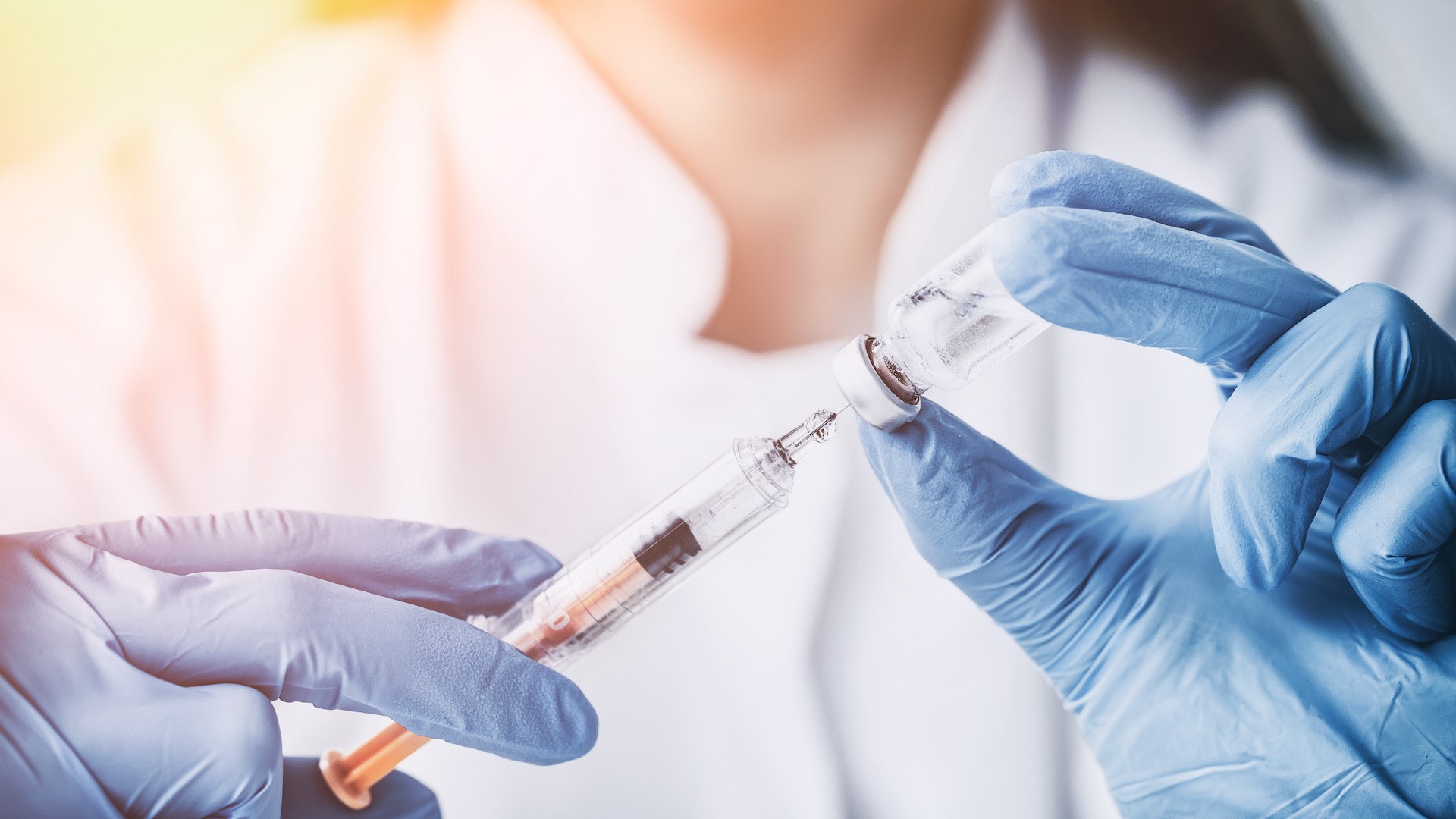
We use cookies to tailor your browsing experience. By continuing to use Gov.sg, you accept our use of cookies. To decline cookies at any time, you may adjust your browser settings. Find out more about your cookie preferences here .

- Privacy Statement
- Terms of Use
- Rate This Website
- Report Vulnerability
- Ministry of Health
News Highlights
18th May 2024
Category: Highlights Press Releases
Cookies on GOV.UK
We use some essential cookies to make this website work.
We’d like to set additional cookies to understand how you use GOV.UK, remember your settings and improve government services.
We also use cookies set by other sites to help us deliver content from their services.
You have accepted additional cookies. You can change your cookie settings at any time.
You have rejected additional cookies. You can change your cookie settings at any time.
- Passports, travel and living abroad
- Travel abroad
- Foreign travel advice
Warnings and insurance
Before you travel.
No travel can be guaranteed safe. Read all the advice in this guide and any specific travel advice that applies to you:
- women travellers
- disabled travellers
- LGBT+ travellers
- solo and independent travel
- volunteering and adventure travel
Travel insurance
If you choose to travel, research your destinations and get appropriate travel insurance . Insurance should cover your itinerary, planned activities and expenses in an emergency.
About FCDO travel advice
The Foreign, Commonwealth & Development Office ( FCDO ) provides advice about risks of travel to help British nationals make informed decisions. Find out more about FCDO travel advice .
Follow and contact FCDO travel on Twitter , Facebook and Instagram . You can also sign up to get email notifications when this advice is updated.
Related content
Is this page useful.
- Yes this page is useful
- No this page is not useful
Help us improve GOV.UK
Don’t include personal or financial information like your National Insurance number or credit card details.
To help us improve GOV.UK, we’d like to know more about your visit today. Please fill in this survey (opens in a new tab) .
- Deutschland
Traveller Essentials
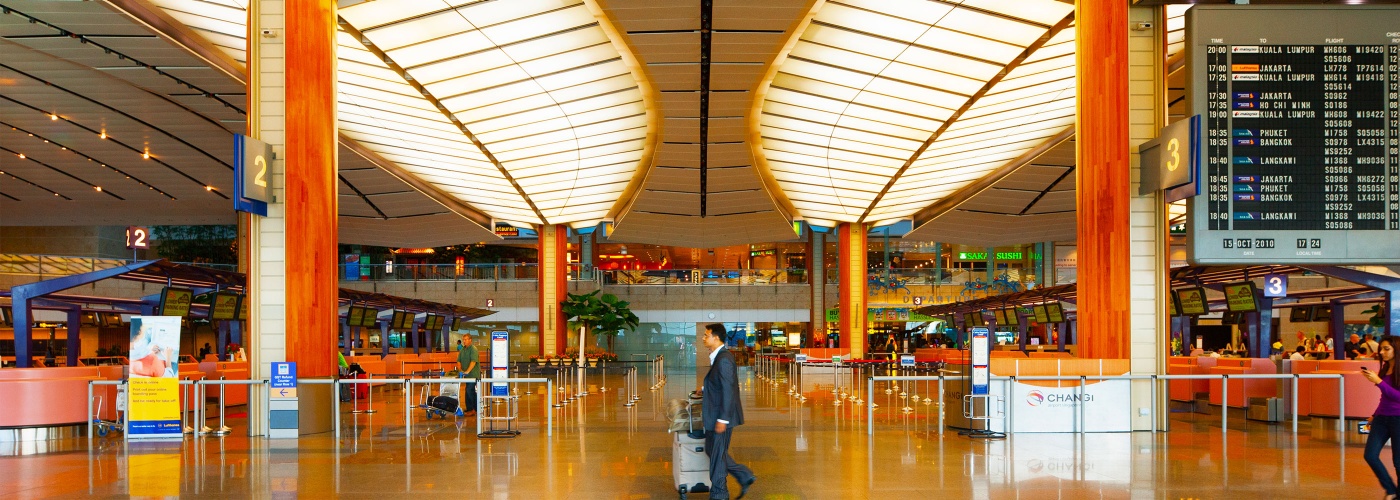
Get the most out of your trip with essential information about Singapore and getting around the city.
- About Singapore
- Getting to Singapore
- Getting Around Singapore


IMAGES
COMMENTS
You must satisfy the basic entry requirements before you can be considered for entry. The grant of an immigration pass will be determined by the ICA officers at the point of entry. From 11 March 2022, all foreign visitors arriving in Singapore will be notified digitally of their Visit Pass (e-Pass) through email.
From 13 February, all travellers can enter Singapore with no entry approvals, pre-departure tests, on-arrival tests, quarantine, and COVID-19 travel insurance required. Your pre-departure checklist: Secure tickets for any flight to Singapore. 3 days before arrival (including the day itself): Submit SG Arrival Card and e-health declaration via ...
To enter Singapore, travellers must meet the following immigration requirements: i) Passport Validity. iii) Security and Immigration Processes on Arrival. Short-Term travellers should have sufficient cash and proof of onward travel (tickets, visas), and ensure that you do not stay beyond your visit pass validity.
Travellers who are unwell or tested positive for COVID-19 should receive medical advice if they fulfil any of the following criteria. Persons with mild ARI symptoms should stay at home until symptoms resolve. If there is a need to go out while symptomatic, or if asymptomatic but test positive for COVID-19, exercise social responsibility by ...
Valid visa (if required); Proof of vaccination Submitted SG Arrival Card. For more information on travel requirements, visit Singapore's SafeTravel Website. Non-fully vaccinated short-term visitors above the age of 13 will require valid entry approval to enter Singapore with 7-day Stay-Home-Notice.
13 February 2023. General Advisory for Travellers. 1. Singapore is open to all travellers without quarantine. This includes non-fully vaccinated travellers. Covid-19 pre-departure tests are not required. More details are available here. 2. Depending on the destination you are travelling from, mask-wearing aboard flights and ferries to Singapore ...
Check if You Need an Entry Visa. Visa Requirements. Travel Documents by Countries and Places. If you hold a travel document issued by one of the countries or places listed below, you will require a valid Singapore entry visa to travel to, and seek entry, into Singapore. Possession of a valid visa does not guarantee entry into Singapore.
From 1 April 2022, entry into Singapore will be allowed for fully vaccinated travellers under the Vaccinated Travel Framework. Stay-Home Notice (SHN) and on-arrival COVID-19 tests are not required for all fully vaccinated travellers, or children aged 12 and below. There is no need to apply for entry approvals (including the Vaccinated Travel ...
They should only resume their travel after testing negative, at least 72 hours from the time they first tested positive. 1. 1 Or on Day 7 for vaccinated persons (and children below 12 years old) if they continue to test positive. Non-fully vaccinated persons aged 12 years and above should only resume travel on Day 14 if they continue to test ...
6. Singapore is a safe and stable place to visit. Singapore is also well-known for its generally stable political and business climate, often ranked as one of the least corrupt countries in the world. Strikes that can disrupt travel plans are practically nonexistent here.
Vaccination remains our first line of defence against COVID-19. Our high vaccination rates have been pivotal to enable us to weather successive waves of COVID-19 infections, build up our societal resilience, protect our healthcare system, and arrive at the endemic COVID-19 norm today. The latest vaccination guidelines can be found at this link.
The Singaporean government urged locals to get Covid booster shots. As per the new regulations, one's "fully vaccinated" status will expire 270 days after getting the second vaccine unless ...
Hepatitis B. Recommended for unvaccinated travelers younger than 60 years old traveling to Singapore. Unvaccinated travelers 60 years and older may get vaccinated before traveling to Singapore. Hepatitis B - CDC Yellow Book. Dosing info - Hep B. Measles. Cases of measles are on the rise worldwide.
Getting Around Singapore; Featured Explore Singapore, Sustainably (Beta) Plan your trip to Singapore with Mobi Go-To Guide: Tourist & Visitors Centres
Before I Travel. Travellers are reminded to check the COVID-19 entry requirements of the countries that you intend to visit. Please refer to ICA's website for more information on the Health-Related Border Measures and general entry requirements for returning Singaporeans and other travellers.. eRegister with MFA so that we can better help you during an emergency or crisis.
Passport validity requirements. To enter Singapore, your passport must have an 'expiry date' 6 months after the date you arrive. If you are a resident in Singapore there is no minimum passport ...
Call us in Washington, D.C. at 1-888-407-4747 (toll-free in the United States and Canada) or 1-202-501-4444 (from all other countries) from 8:00 a.m. to 8:00 p.m., Eastern Standard Time, Monday through Friday (except U.S. federal holidays). See the State Department's travel website for the Worldwide Caution and Travel Advisories.
A4: You can submit the electronic health declaration within three (3) days (including the day of your arrival) before your arrival in Singapore, to avoid unnecessary delays during immigration clearance. For example, if you are arriving in Singapore on 30 Jun 2023, you can submit your declaration from 28 Jun 2023 onwards.
4 pre-designated visitors per resident. 1 visitor may visit each time. Visit duration. Limited to 30 mins. In exceptional situations 2, visitors may be allowed to stay beyond 30 minutes. Limited to 30 mins. All visitors are: Encouraged to self-test ART negative on the day of visit. Refrain from visiting if they are feeling unwell.
Singapore is more than its tourist attractions. It's constantly evolving, reinventing, and reimagining itself, with people who are passionate about creating new possibilities. It's not just about what you can do here, it's about what you can be. learn more. Get inspired by the official destination website on what to see and do in Singapore.
Guidelines . Legislation . Acts regulating drugs, healthcare professionals, medical practices, research and more. ... is closely tracking the recent rise in COVID-19 infections in Singapore. While there is no indication that the circulating variants are more transmissible or cause more severe disease compared to previous variants, immunity in ...
Living in Singapore. Travelling to Singapore. FCDO travel advice for Singapore. Includes safety and security, insurance, entry requirements and legal differences.
Other Resources; Tourism Information and Services Hub; Need quick answers? Get them via our chatbot on Facebook. Tourist Hotline. Toll-free in Singapore 1800 736 2000* From Overseas
A new coloured photograph must be submitted when applying for a new application. Printed photograph for hardcopy submission must be on a matte or semi matte finish (non-reflective photo). Your photograph must meet ICA's requirements. ICA's passport photo requirements are based on specifications by the International Standards Organisation ...